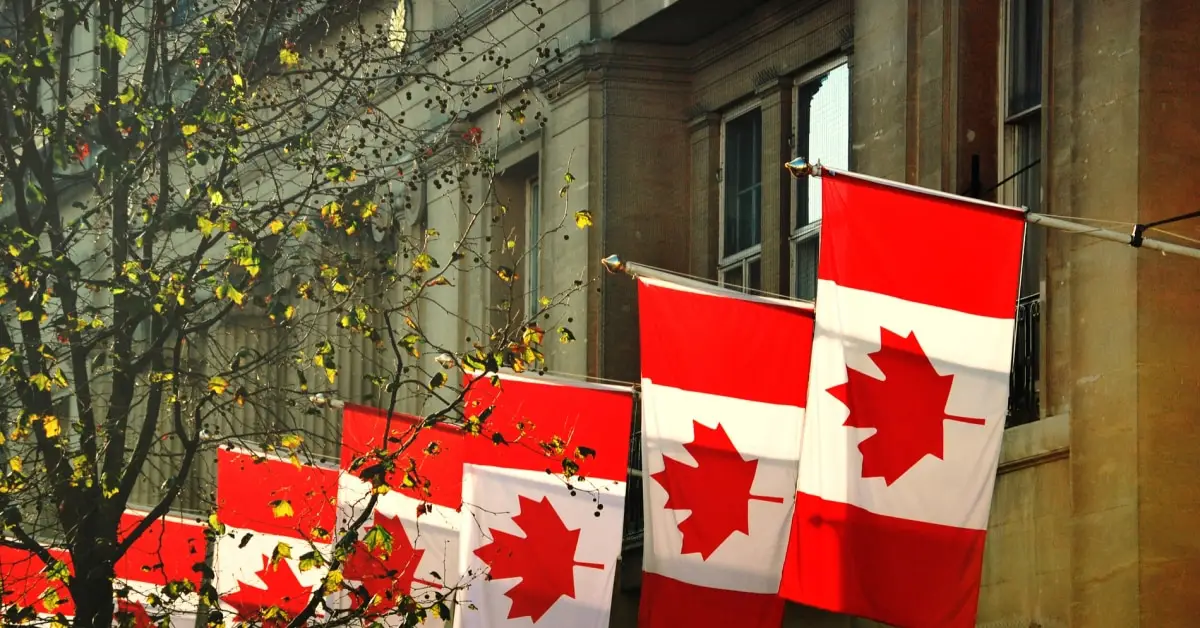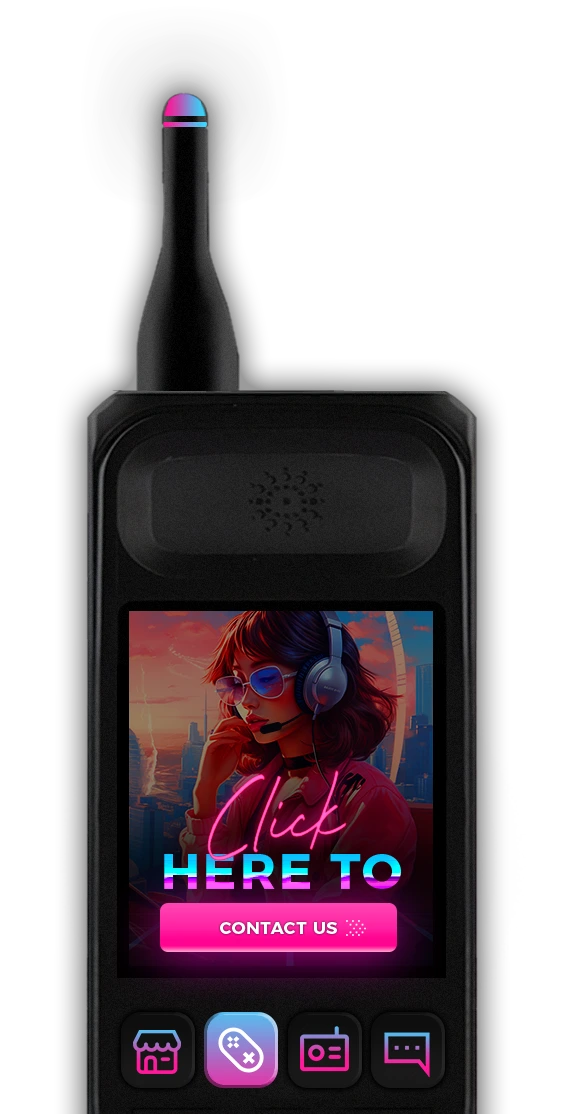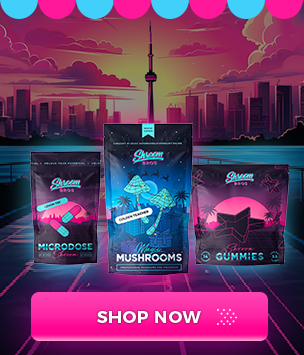Answered on this page:
- When did magic mushrooms first appear in Canada?
- When were magic mushrooms made illegal in Canada?
- Are magic mushrooms illegal in Canada today?
- How are magic mushroom laws enforced in Canada?
- What does the future hold for magic mushrooms in Canadian law?
New research has Canadians increasingly interested in the potential medicinal benefits of magic mushrooms and their active ingredient, the hallucinogenic compound psilocybin. Recent studies indicate that taking magic mushrooms under the right conditions can produce positive personality changes, help treat addictions, and reduce (or even eliminate) symptoms of depression.
We know millions of Canadians are struggling with depression and addictions, especially during the COVID-19 pandemic, so what’s preventing more Canadians from taking advantage of the potential benefits of magic mushrooms? For many, it’s the relationship between magic mushrooms and Canadian law.
The legal status of magic mushrooms in Canada is going through a period of intense change, but don’t worry if you’re having trouble keeping up – we’ve got you covered.
This article will explain everything you need to know about magic mushrooms and Canadian law. We’ll start with a primer on the history of magic mushroom laws in Canada, review the current legal status of magic mushrooms in Canadian law, then look into the future and try and predict how Canada will be regulating magic mushrooms in the years and decades to come.
Note: We have to put a disclaimer here and let you know that we’re not your lawyer and this article is not legal advice. If you need legal advice, get a lawyer.
A History of Magic Mushroom Laws in Canada
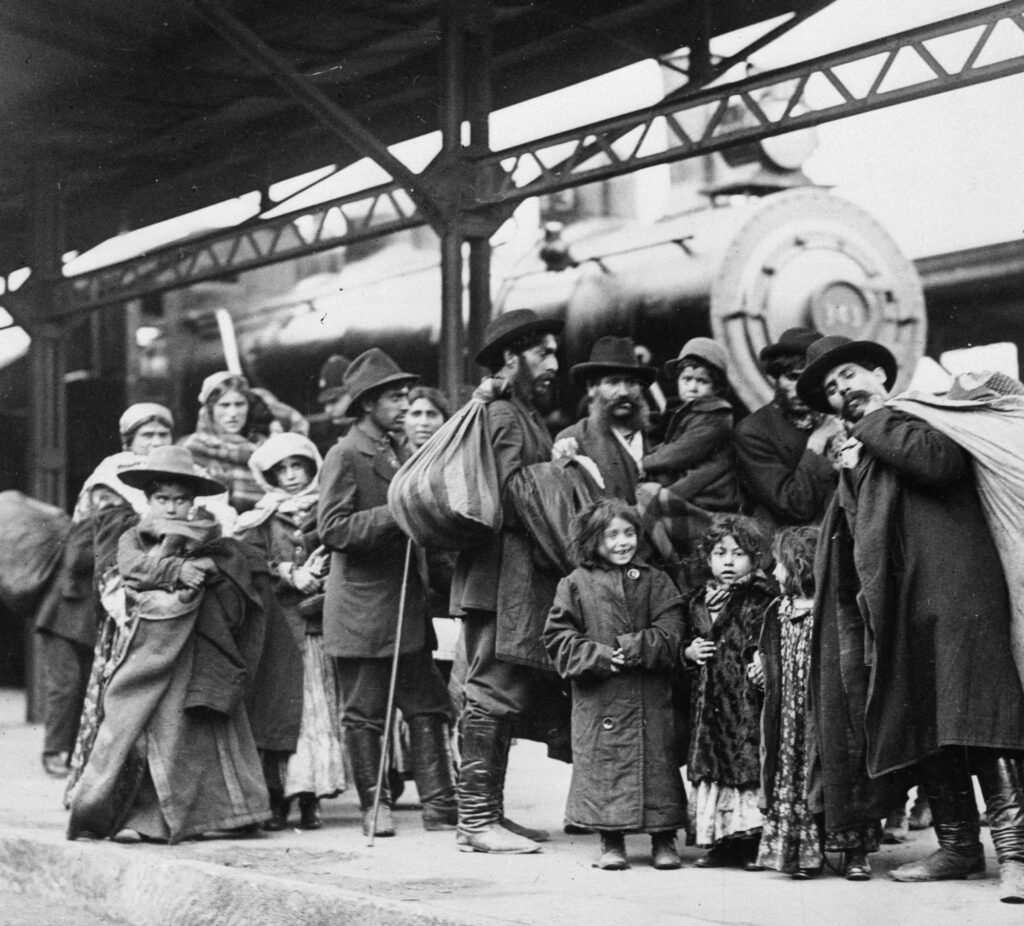
Very few Canadians had ever heard of magic mushrooms before 1957, when Life Magazine published an article called “Great Adventures III: Seeking the Magic Mushroom” by Robert Gordon Wasson, an amateur mycologist.
In the article, Wasson described his experience travelling to Oaxaca, Mexico and taking magic mushrooms with Mexico’s indigenous people known as the Mazatec. He claimed to be “the first white man in recorded history to eat the divine mushrooms”.
The article served as a roadmap that would lead countless Canadians, Americans, and Europeans to Mexico in the 1960s, in pursuit of the same hallucinogenic and spiritual experiences that Wasson had described.
After these tourists returned home, they began to recognize pasture mushrooms in the local environment that were similar to those they encountered in Mexico – as it turns out, mushrooms with hallucinogenic properties occur naturally on every continent of the world.
Magic mushrooms began to be used in Canada in the mid-1960s. The first criminal seizure of magic mushrooms took place in Vancouver in 1965, when RCMP officers confiscated psilocybin-containing liberty cap mushrooms from a group of students at the University of British Columbia.
Magic mushrooms continued to grow in popularity through the hippie movement in the late 1960s and early 1970s. Liberty cap mushrooms grew abundantly in the pastures, meadows, and fields of British Columbia, attracting thousands of pickers from across the country.
Pickers would arrive in autumn when the mushrooms were in season, establishing tent cities around the most productive areas and often committing petty crimes like trespassing or property damage to access liberty caps growing on private land. Magic mushrooms were still technically legal in Canada, but the practices around accessing the mushrooms were often illegal or disruptive to the community.
While disruptive mushroom pickers may have created problems for local police, they may not have influenced the development of Canadian Law as much as a single document from the United Nations: the Convention on Psychotropic Substances, 1971. This was an International treaty where 71 states agreed to participate in a worldwide program to limit the availability of psychotropic substances to the general public and restrict the use of psychotropics to medicinal and scientific settings.
The 1971 Convention listed psilocybin as a Schedule I drug, the most restrictive designation possible. Schedule I drugs were characterized as having a high potential for abuse and no known therapeutic value, a description that no longer seems to suit magic mushrooms. Ultimately, the convention on psychotropic substances influenced how Canada, as well as other countries, wrote laws to govern the use of psychotropics. In many cases, complying with the convention meant banning psychotropic substances like magic mushrooms entirely, often without complete knowledge of their effects – either positive or negative.
Predictably, magic mushrooms were prohibited in Canada in 1974, by their addition to the Food and Drug Act – sort of. In fact, the government of Canada added the compound Psilocybin to the Food and Drug Act – not the mushrooms themselves (this becomes important later). Between 1974 and 1979, approximately 350 individuals were convicted under the Food and Drug Act for possessing magic mushrooms.
Then, in 1979, the British Columbia Court of Appeals ruled that possession of magic mushrooms in their natural state (freshly picked and not dehydrated) did not constitute possession of psilocybin. For three years, between 1979 and 1982, magic mushrooms were completely legal in Canada and pickers rejoiced.
But their joy was short-lived, as a 1982 decision from the Canadian Supreme Court would overrule the B.C. Court of Appeals decision, stating that possession of magic mushrooms in their raw form did actually constitute possession of psilocybin. Magic mushrooms were illegal in Canada once again and would remain illegal for decades to follow.
Magic Mushrooms in Canada: What Does the Law Say Today?

Magic mushrooms are still under prohibition in Canada, although recent legislative changes indicate that this could change in the near future. Still, our review of magic mushrooms and Canadian law would be incomplete without a thorough analysis of how mushrooms and psilocybin are regulated in Canada today.
Here’s everything you need to know.
Magic Mushrooms are Regulated Under the Controlled Drugs and Substances Act
Magic mushrooms are not explicitly mentioned in the Controlled Drugs and Substances Act (CDSA). However, Psilocybin, the active ingredient in mushrooms, belongs to the list of Schedule III controlled substances which includes other recognized psychotropics, such as:
- Methylphenidate (Ritalin/Concerta, used to treat ADHD)
- Lysergic acid diethylamide (LSD)
- Mescaline (Hallucinogenic, occurs naturally in Peyote cactus)
- Dimethyltryptamine (DMT, a hallucinogenic compound produced by the human brain and associated with dreaming)
Possession of magic mushrooms in their natural state is still considered to constitute possession of psilocybin. The CDSA even states that any reference it makes to a controlled substance also includes a reference to any substance containing the controlled substance.
Thus, all of the laws which apply to Schedule III controlled substances may be applied to psilocybin itself or to magic mushrooms in any form that contain psilocybin
Possession of Magic Mushrooms is Regulated in Canada
The CDSA prohibits anyone in Canada from possessing psilocybin or magic mushrooms except as authorized under Canadian law. Medical practitioners such as doctors, lawyers, or veterinarians, may be authorized under the regulations to prescribe psilocybin treatments to their patients.
Patients seeking a prescription for magic mushrooms from a practitioner are required by law to disclose any other acquisitions of drugs in Schedule I, II, III, or IV, along with any prescriptions received for such substances in the past 30 days.
Selling of Magic Mushrooms is Regulated in Canada
The CDSA prohibits anyone from possessing magic mushrooms for the purpose of trafficking them to others.
Importing/Exporting Magic Mushrooms is Regulated in Canada
The CDSA prohibits anyone from importing or exporting magic mushrooms except as authorized under Canadian regulations.
Growing Magic Mushrooms is Regulated in Canada
The CDSA prohibits anyone from producing magic mushrooms in Canada.
How Are Magic Mushroom Laws Enforced in Canada?

The general trend in Canada is that enforcement of drug crimes is declining. The number of yearly arrests for drug-related offences has dramatically dropped by 30% in the last 5 years, as documented by Statistics Canada.
- In 2015, police arrested 99,827 Canadians for drug-related offences.
- In 2016, police made a total of 95,417 arrests in Canada for drug-related offences, 46% of which were for cannabis possession.
- In 2017, the total number of arrests fell to 90,625 and just 42% were for cannabis possession.
- In 2018, the total number of arrests fell again, this time to 84.927, driven in part by the legalization of cannabis in October same year. Still, cannabis-related offences accounted for 43% of all arrests.
- In 2019, Canadian police made just 70,140 drug-related arrests and just 24% were related to cannabis.
And where were magic mushrooms in all this? Well, the Vancouver City Council recently voted to strike down a motion to crack down on magic mushroom vendors. We can also look to the emergence of new Psychedelics companies such as Numinus – the first Canadian company legally harvesting magic mushrooms.
There are many other promising developments in these areas, and arrests for possession rarely result in any major penalties for those with clean criminal records.
As a result of these considerations, the courts tend to show leniency to first-time offenders with a clear record, especially in cases of simple possession where the penalty for a first-offence is sometimes just a fine of $250-500.
Magic Mushrooms and Canadian Law: Indications of a Bright Future
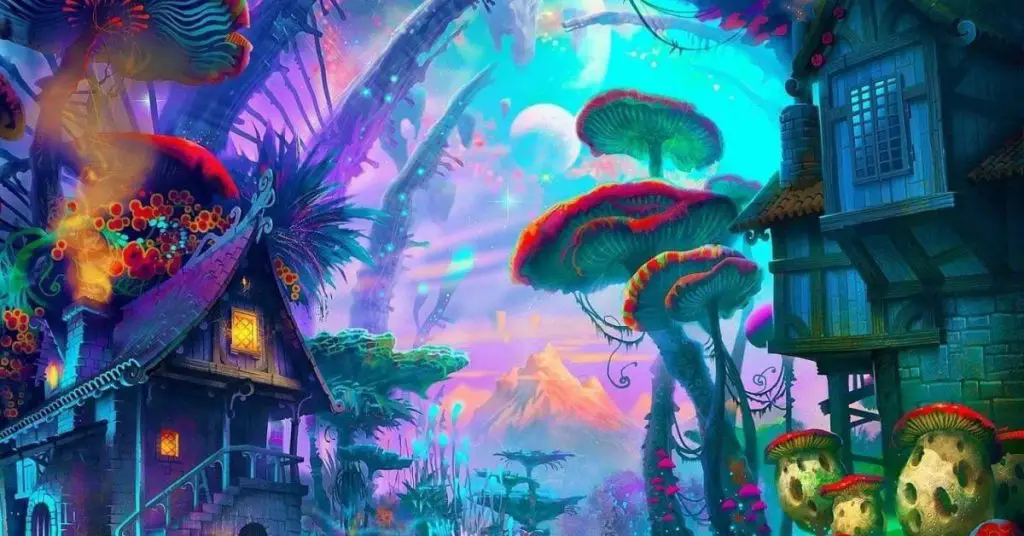
Historically, the courts haven’t always agreed on whether magic mushrooms should be illegal in Canada.
What’s also clear is that the Canadian lawmakers who pushed for prohibition were unaware of the medicinal benefits of psilocybin that have been uncovered by modern research into psychedelic substances.
But now that those benefits are coming to the surface, we’re seeing our government and our courts change their stance on magic mushrooms. Just like when cannabis was legalized, we’re starting to see “soft changes” in how magic mushrooms are regulated that could ultimately lead to decriminalization and more widespread usage in the future.
Below, we highlight some of the critical milestones that have been reached in the past five years for the legal status of magic mushrooms in Canada.
Magic Mushrooms are Openly Sold Online
Despite their questionable legal status, magic mushrooms are openly sold online in Canada. Digital dispensaries sell a variety of shroom products to Canadians over 19 years of age, with or without a medical prescription. The authorities know about these dispensaries but have chosen to focus their limited resources on criminal activities involving more harmful drugs.
Vancouver City Council Killed Motion to Crack Down on Psilocybin Sales
The lack of political will to prosecute Canadians for magic mushrooms has never been more clearly evident than it was on September 11th, 2019, in a meeting of the Vancouver city council.
This was when Councillor Melissa De Genova filed a motion with the title: “Deterring and Preventing the Distribution and Sale of Psilocybin Mushrooms and/or Other Illicit or Controlled Drugs Unlawfully Sold in the City of Vancouver”.
Breaking the fourth wall here for a moment, I can honestly say that I have never witnessed any occurrence of a government body who introduced a motion on whether or not it should enforce the de facto laws of the land. Why should politicians need to file a motion that mandates police to do their job? Aren’t the police already mandated to do their job?
The truth is that the police are too busy dealing with the impacts of hard drugs like opioids to bother chasing people around for magic mushrooms, especially now that they’ve been associated with positive health benefits for so many people.
In any case, other councillors characterized the motion as “anti-drug hysteria” and it was defeated in a 6-2 vote.
Magic Mushroom Growing Kits and Spores are Legal
While the practice of cultivating magic mushrooms is technically illegal, magic mushroom spores and growing kits may be purchased in Canada, both in stores and online. It is not explicitly legal to purchase these kits, but nowhere is it prohibited and the kits themselves do not contain any psilocybin.
It may be illegal under 7.1(1) of the CDSA to sell mushroom growing kits, as they will be used to produce a controlled substance, however, the sale of mushroom kits is a common and generally tolerated practice.
Magic Mushrooms Approved for Palliative Patients
In April of 2020, four Canadians in palliative care with terminal illnesses petitioned the Canadian Health Ministry for a legal exemption that would allow them to use magic mushrooms to relieve the depression and anxiety associated with dying.
On August 4th, it was revealed that their request had been granted and they would be the first four people to legally use magic mushrooms in Canada since the Supreme Court decision of 1982, a period of 28 years. Since then, at least 7 other legal exemptions have been awarded for psilocybin use, including at least 1 exemption for a non-palliative case.
Ministry of Health Supports Research into Psychotropics
At the beginning of this article, we talked about some of the research that has uncovered new benefits of magic mushrooms that were previously not known.
The promising results obtained in these studies have led Health Canada to hand out more legal exemptions to health professionals who wish to conduct research and develop therapies involving psilocybin.
In December 2020, Health Canada granted 16 exemptions to a selection of social workers and medical professionals. This gave them permission to possess and use psilocybin themselves, without the risk of legal consequences, for the purpose of developing new treatment protocols for patients.
Growing Magic Mushrooms Could Soon Be Legal for Medicinal Purposes
In the year 2000, the Ontario Court of Appeals determined that Canada’s anti-cannabis laws were unconstitutional because they did not provide an exemption for medical use.
This, the court said, violated the individual’s right to “life, liberty, and security of the person” as outlined in Section 7 of the Canadian Charter of Rights and Freedoms.
The legal precedent established here is essentially that the government shouldn’t prohibit a private citizen from being prescribed a medicine that can improve their quality of life. This designation might not have applied to magic mushrooms six or seven years ago, but with the new research and developments we’re seeing, it sure seems to apply today.
If precedent holds, it could mean that Canadians have a constitutional right to access medicinal psilocybin or even to grow it for personal use.
Magic Mushrooms and Canadian Law: What’s Next?
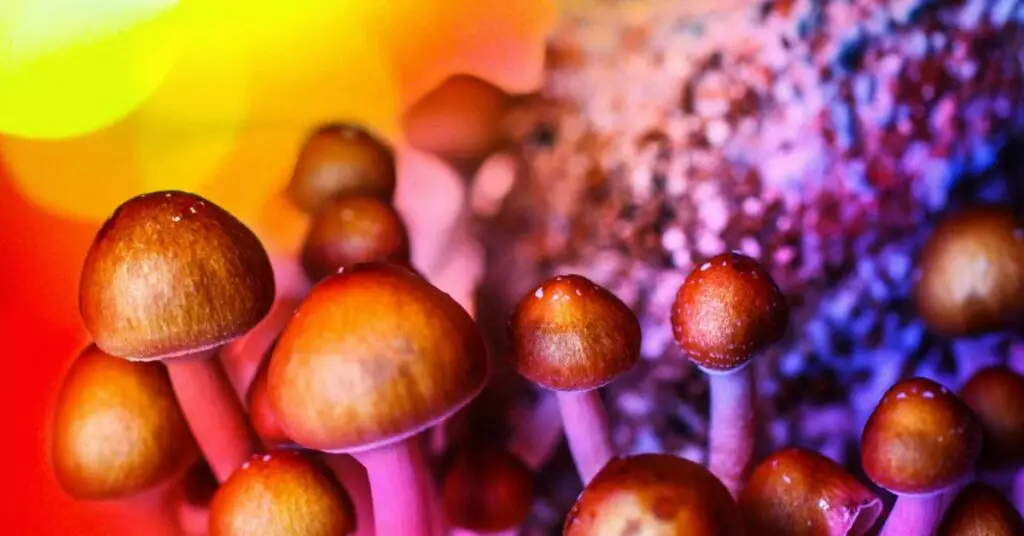
It appears that magical mushrooms are on the same path to legality that cannabis started on in 2001.
While magic mushrooms are still technically illegal, individuals are rarely prosecuted for simple possession and penalties for first-time offenders usually consist of a fine that costs less than a traffic ticket.
The general trend of drug enforcement is on the decline and government bodies like the Vancouver City Council have voted not to ramp up enforcement activities against psilocybin dispensaries, both online and in the city.
It’s also important to look at what’s happening across the border. Magic mushrooms are still illegal the federal level in the United States, but simple possession has already been decriminalized in places like:
- Ann Arbor, Michigan,
- Denver, Colorado,
- Oakland, California,
- Santa Cruz, California,
- Washington, D.C
- Oregon
Magic mushrooms will be legal for use in supervised clinical settings in Oregon as of February, 2021.
In the future, we expect to see more legal exemptions for magic mushroom usage, both for medical professionals who wish to conduct studies and develop treatments and for private individuals who wish to enjoy the health benefits of psilocybin.
More research is now being conducted into the health benefits of magic mushrooms than at any other time in our history. We believe this research will only yield additional evidence of the health benefits of magic mushrooms. As this body of evidence continues to grow, Canadians who claim the constitutional right to access medical psilocybin will start having their voices heard.
If all of the above holds true, the question isn’t “if” magic mushrooms will be legal in Canada one day – but “when?” and “how?”.
One path to legality involves the Federal government choosing to remove psilocybin from the list of Schedule III substances. This could depend very much on how Canadians vote: while Prime Minister Justin Trudeau has stated that he won’t consider decriminalizing drugs besides cannabis while he is in office, NDP leader Jagmeet Singh has publicly stated his intention to decriminalize all illegal drugs if elected.
The other path is a successful constitutional challenge, alleging that Canadians have the right to grow and possess magic mushrooms for medical purposes. If we collectively assert our rights to life, liberty, and security of the person, our government should recognize that access to beneficial medicine, including psilocybin, is protected under the Canadian Charter of Rights and Freedoms.
